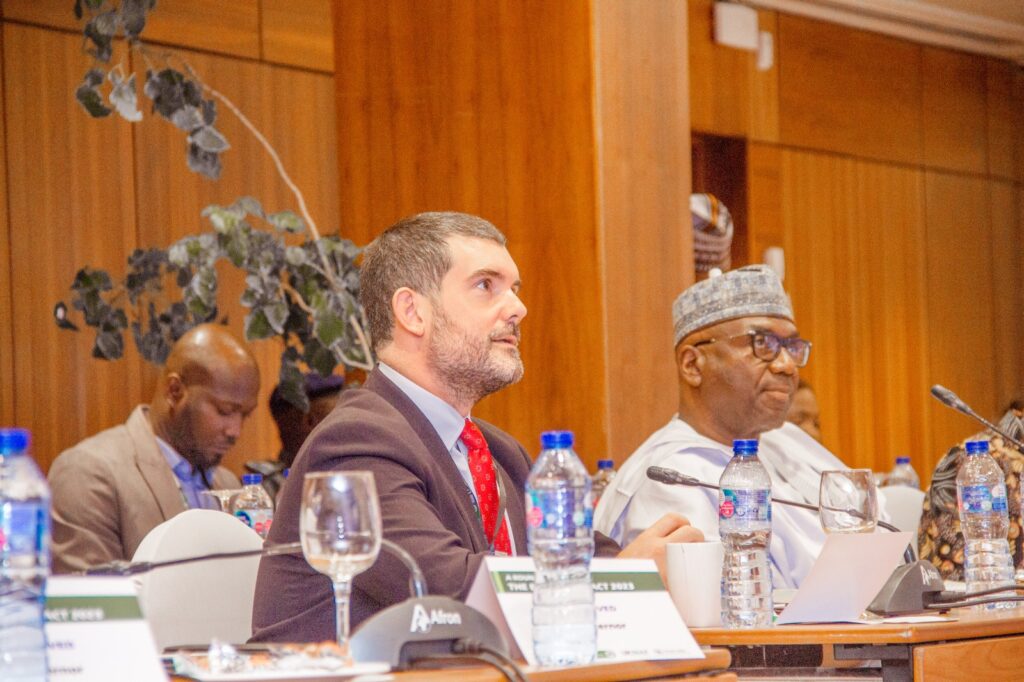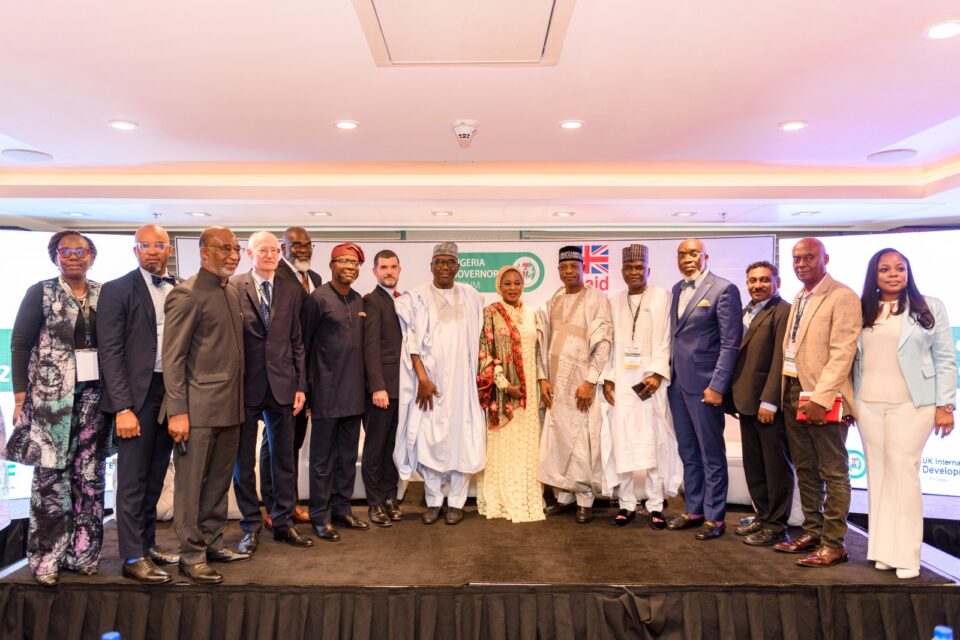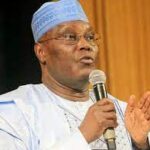As part of efforts to help solve the challenge of inadequate electricity supply in Nigeria, the Nigeria Governors’ Forum (NGF) and the British High Commission have jointly convened a two-day Roundtable on the Electricity Act 2023, in Abuja.

Thomas Pascoe, Project Director, United Kingdom Nigeria Infrastructure Advisory Facility (UKNIAF) and Chairman NGF, Abdulrahman Abdulrazaq, at the Electricity Act 2023 Roundtable Event in Abuja.
Facilitated by the United Kingdom Nigeria Infrastructure Advisory Facility (UKNIAF), the Roundtable was themed ‘The Electricity Act 2023: Implications and Opportunities for State Electricity Markets’, and held in Abuja last Thursday and Friday.
It aimed to identify strengths, weaknesses, opportunities, and threats linked to the new Electricity Act 2023 and strategies for navigating emerging challenges.
The Roundtable was attended by representatives from the Nigeria Governors’ Forum, Ministry of Power, state governments, heads of agencies and senior management personnel from Federal Ministries, Departments and Parastatals.
Private sector attendees included representatives from International Development Agencies and Development Finance Institutions; and the event featured keynote papers from technical experts and panel discussions with industry actors in Nigeria and abroad.
In her welcome speech, the British Deputy High Commissioner, Gill Atkinson, noted that the new provision for State Governments to generate, transmit and distribute electricity is critical in reducing the energy deficit in Nigeria.
“This is the time to explore new opportunities to scale up electricity and deliver it to more Nigerians”, she stated.
Highlights from the Roundtable sessions and panel discussions include the recognition that not all states are positioned to take immediate advantage of opportunities, the need for a context-specific approach that accommodates the unique challenges and limitations of states as well as the need to create the enabling environment to attract investment.
Industry experts and sector stakeholders cited critical enablers in progressing the Electricity Act as orderly transition, stakeholder engagement and management, market coordination and governance and regional collaboration.
Outcomes from the Roundtable included an agreement on the need for State Governments to identify and prioritise opportunities for joined-up initiatives at the regional level to ensure cohesive implementation of the Electricity Act.
Some identified next steps for States include, the development of transition roadmaps based on contextual stocktake exercises, the deployment of broad-based professional expertise to build sector capacity and support the process and the identification of clear state-level market structures.
Another key outcome from the Roundtable was consensus on the urgent need for the donor community and Development Finance Institutions (DFIs) to scale up their support to State Governments, bearing in mind state-level contextual realities.
The Chairman of the NGF, Abdulrahaman Abdulrazaq, explained that “through these collaborations, we seek to achieve the following objectives – capacity building, policy guidance, knowledge sharing and above all infrastructural/project development by supporting State governments in identifying and developing bankable projects in the electricity sector, ensuring that these projects meet the highest standards of technical, social, and environmental sustainability.”
Project Director at UKNIAF, Thomas Pascoe, added that “the issue of the Nigerian energy sector is not talent, it is structure – the structure to grow, thrive and improve state economies. These discussions have now set the course for a promising future in the energy sector, driven by clarity, collaboration, and a commitment to excellence.”
The UKNIAF) is a technical assistance programme that aspires to transform Nigeria’s capacity to plan, finance, deliver and maintain climate-smart critical infrastructure. It aims to achieve transformation through technical support in two component areas: Power and Infrastructure Finance.
UKNIAF targets improved access to inclusive, climate-compatible social and economic infrastructure to contribute to economic growth and human development.
The Foreign, Commonwealth & Development Office (FCDO) aims to position the United Kingdom (UK) as a responsible, reliable, and effective international actor and partner, investing in long-term global relationships.
It safeguards the UK’s security, defends its values, reduces poverty, and tackles global challenges with international partners. The FCDO promotes and protects the UK’s core national interests, prosperity and sovereignty while working to shape an open and stable international order.
The Nigeria Governors’ Forum (NGF) is a coalition of elected state governors created to enhance collaboration among the executive governors of Nigeria. It aims to promote inclusive governance and sustainable development. NGF serves as a credible, authoritative and effective inter-party platform for consensus building, peaceful resolution and advancement of pan-Nigeria goals, interests and aspirations.



